COVID-19 vaccination support for hard-hit communities
Kaiser Permanente grants $400,000 to grassroots nonprofits in Hawaii.
HONOLULU — Kaiser Permanente in Hawaii announced grants to various Hawaii community organizations to help them remove barriers to vaccination among communities most impacted by COVID-19. The money, totaling approximately $400,000, will support equitable access to vaccinations.
“Our communities disproportionately impacted by COVID-19 are also the communities where vaccination rates are lagging,” said John Yang, MD, president and medical director for the Hawaii Permanente Medical Group. “By supporting trusted community-based organizations in their work, we can further efforts to disseminate educational materials and remove barriers to vaccine access, ultimately improving vaccination rates and bringing Hawaii closer to the end of this pandemic.”
Grants were awarded to the following organizations:
- Project Vision Hawaii received $150,000
- Marshallese Community Organization of Hawaii received $75,000
- Pacific Gateway Center received $75,000
- Hui No Ke Ola Pono received $50,000
- City Church received $60,000
The money will help these organizations provide culturally relevant vaccine content aimed at addressing hesitancy and correcting misinformation within their target populations. It will also help ensure the success of pop-up vaccination clinics by providing on-site support staff. Long term, the funding will support overall health equity such as encouraging well-child visits. Kaiser Permanente notes that routine vaccinations and checkups have declined due to the pandemic.
“In some areas we serve, such as Wahiawa, we are seeing vaccination rates as low as 35% to 45%,” said Terrina Wong, deputy director for Social and Immigration Services at Pacific Gateway Center. “To support the vaccine efforts in Wahiawa and the surrounding communities, where 26% of the residents speak a language other than English, the Kaiser Permanente grant has provided us with the resources for interpreters on-site to accommodate residents who speak Chuukese, Ilocano, and Tagalog. We understand that there are questions about the vaccine and the most effective way to approach those questions is with information from trusted sources in native languages. The support and resources from Kaiser Permanente allow us to connect with communities who feel left out or left behind. We all need to work together to get more people vaccinated.”
The grants are part of a comprehensive national Kaiser Permanente COVID-19 education campaign to fill information gaps and foster trust among communities most impacted by the pandemic. So far, Kaiser Permanente has provided $5 million in grants to support 24 nonprofit and community-based organizations that are providing direct assistance in communities across the United States to people most affected by COVID-19. The campaign is designed to encourage vaccination, motivate people to keep wearing masks, physically distance, and avoid gatherings until the pandemic ends.
About Kaiser Permanente
Kaiser Permanente is committed to helping shape the future of health care. We are recognized as one of America’s leading health care providers and not-for-profit health plans. Founded in 1945, Kaiser Permanente has a mission to provide high-quality, affordable health care services and to improve the health of our members and the communities we serve. We currently serve approximately 12.5 million members in 8 states and the District of Columbia. Care for members and patients is focused on their total health and guided by their personal Permanente Medical Group physicians, specialists, and team of caregivers. Our expert and caring medical teams are empowered and supported by industry-leading technology advances and tools for health promotion, disease prevention, state-of-the-art care delivery, and world-class chronic disease management. Kaiser Permanente is dedicated to care innovations, clinical research, health education, and the support of community health.
-
Social Share
- Share COVID-19 Vaccination Support for Hard-Hit Communities on Pinterest
- Share COVID-19 Vaccination Support for Hard-Hit Communities on LinkedIn
- Share COVID-19 Vaccination Support for Hard-Hit Communities on Twitter
- Share COVID-19 Vaccination Support for Hard-Hit Communities on Facebook
- Print COVID-19 Vaccination Support for Hard-Hit Communities
- Email COVID-19 Vaccination Support for Hard-Hit Communities
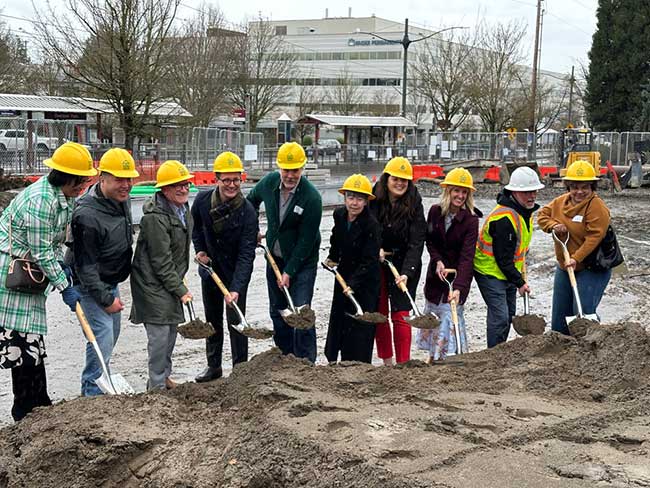
April 15, 2025
3 ways we’re helping build and preserve affordable housing
Good health starts with having a safe, affordable place to live.

March 27, 2025
We’re committed to mentorship, mental health, and communities
Kaiser Permanente awarded Elevate Your G.A.M.E. a grant to expand program …
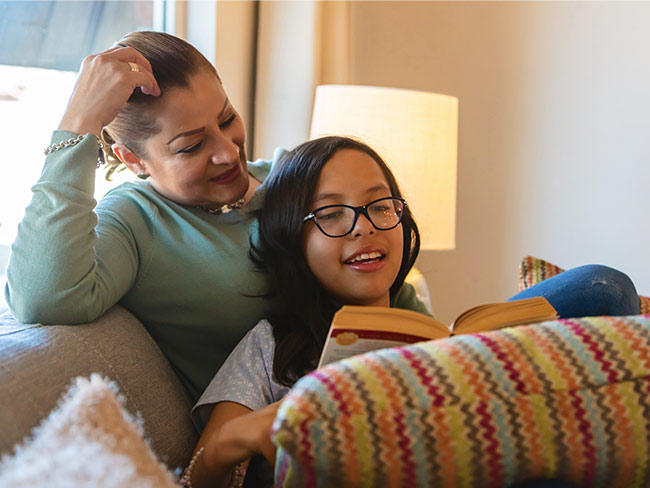
January 13, 2025
How to prevent cervical cancer
Cervical cancer is highly preventable. HPV vaccination and regular screenings …

November 18, 2024
Grant supports Colorado Safe Futures Fund
Through public health initiatives, $95,000 will be used to prevent firearm …
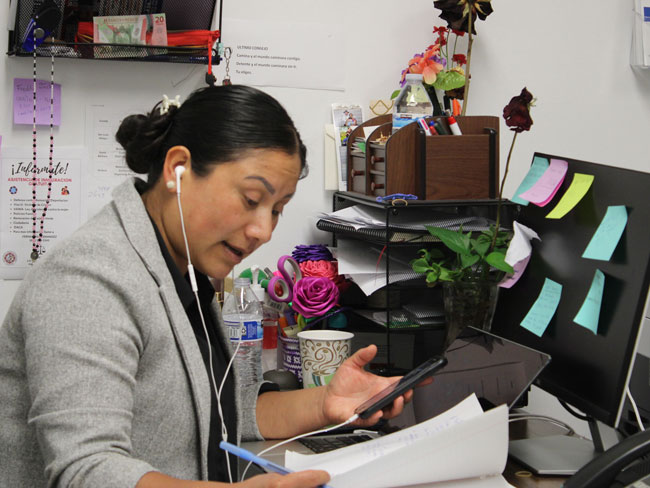
November 11, 2024
Health care coverage now accessible to uninsured people
Indigenous farmworkers may qualify for new Kaiser Permanente coverage.

October 29, 2024
Paid internships support future public health leaders
Valedictorian uses bilingual-bicultural fluency to connect with community …

October 15, 2024
Our dedication to fostering well-being and equity
The 2023 Kaiser Permanente Southern California Community Health County …
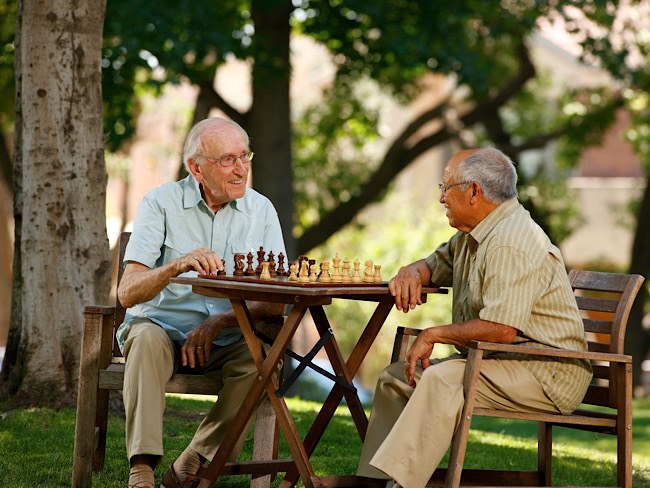
August 29, 2024
Living longer and better lives
Kaiser Permanente in Southern California invests $10 million in Riverside …

July 23, 2024
Increasing resources to house single-parent families
Warren Village expands its efforts to transform Denver’s affordable housing …

July 16, 2024
Teacher residency program improves retention and diversity
A $1.5 million Kaiser Permanente grant addresses Colorado teacher shortage …

July 11, 2024
Transforming education and mental health in Watts
Our investment in the Watts neighborhood of California, in partnership …
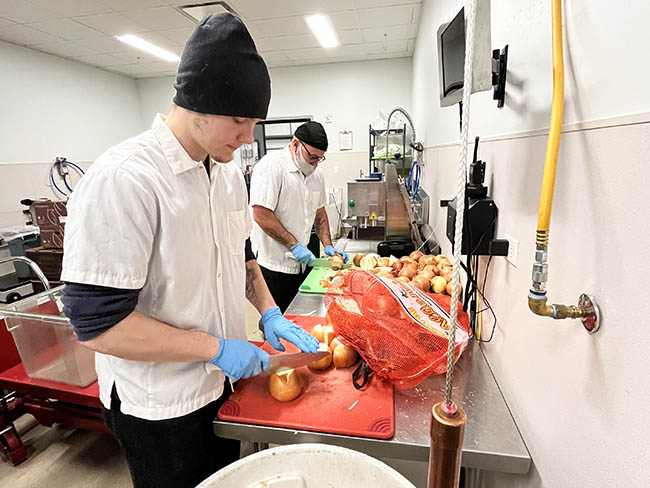
July 10, 2024
Grant to help make school lunches healthier for kids
Chef Ann Foundation will use $275,000 grant for Colorado program to convert …

July 2, 2024
Reducing cultural barriers to food security
To reduce barriers, Food Bank of the Rockies’ Culturally Responsive Food …
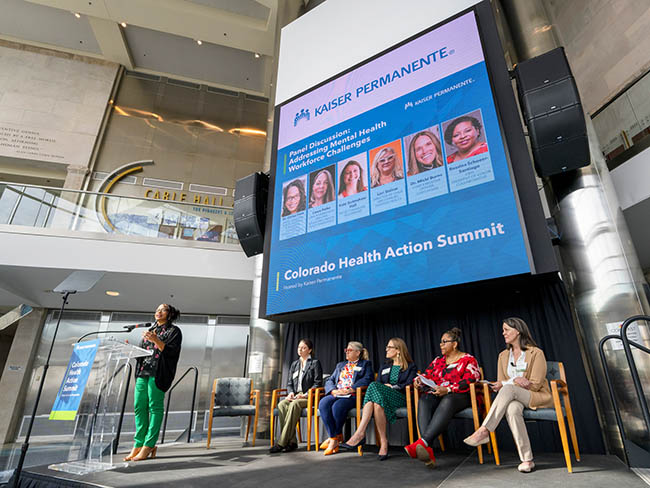
June 28, 2024
Health Action Summit highlights mental health opportunities
The Kaiser Permanente Colorado Health Action Summit gathered nonprofits, …

June 19, 2024
Investments in Black community promote total health for all
Funding from Kaiser Permanente in Washington helps to promote mental health, …
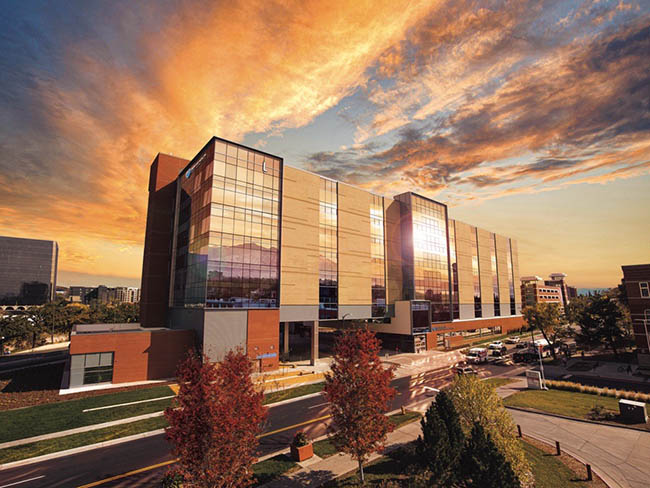
March 26, 2024
Donations assure access to affordable health care
Kaiser Permanente grant and challenge spark $18.7 million for Denver Health’s …
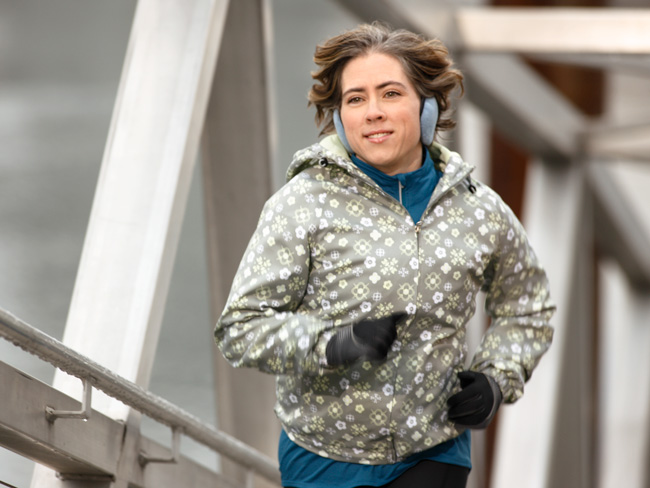
February 7, 2024
To stay well, get vaccinated and practice healthy habits
Cases of flu, COVID-19, and RSV continue to spread in our communities. …

December 21, 2023
It’s not too late to get your flu shot
Flu season often continues into early spring. Here are 5 reasons you should …

December 20, 2023
Funding solutions to end gun violence
Researchers and organizations are exploring inventive ways to reduce gun …
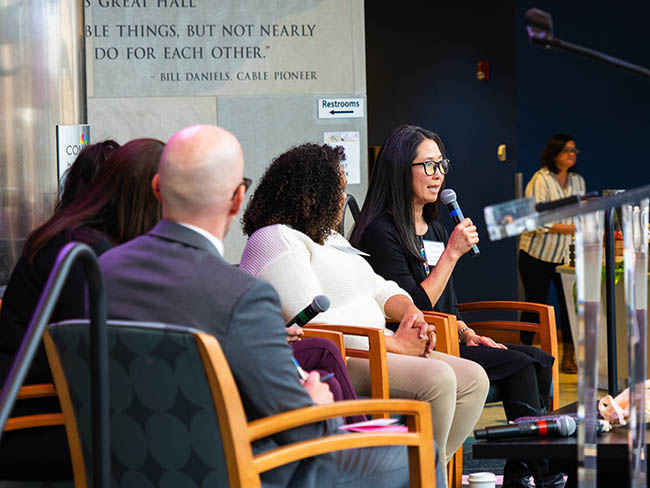
December 12, 2023
Hundreds attend first Food Is Medicine Summit
Attendees look at ways to get healthy food to people who don’t have enough …

October 27, 2023
Nearsightedness in kids: Taking a closer look
Nearsightedness, also known as myopia, is on the rise. To reverse that …
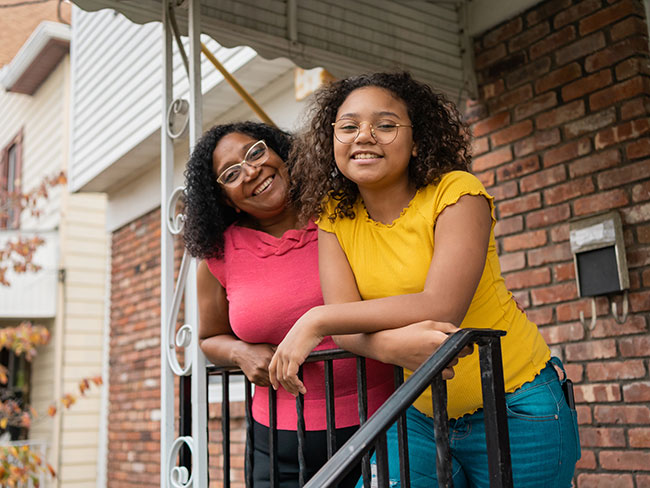
October 19, 2023
Expanding support for housing stability
Innovative medical-legal partnerships keep families in stable housing to …
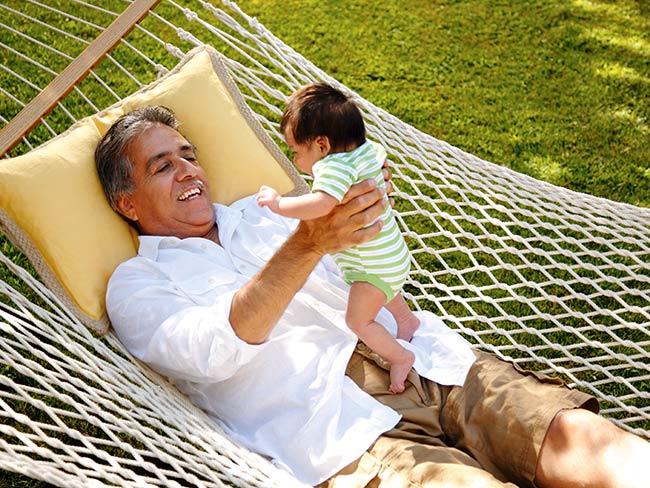
October 17, 2023
Flu protection for all that is you
Getting vaccinated is a safe and effective way to avoid getting sick.

October 11, 2023
Expanded gun violence prevention efforts
The next phase for the Kaiser Permanente Center for Gun Violence Research …
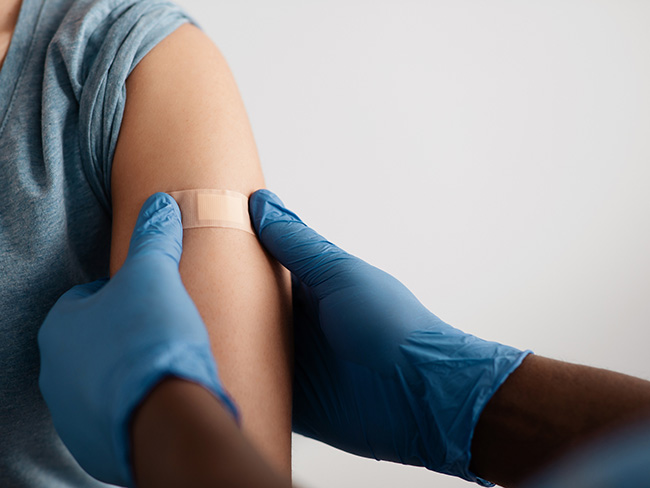
October 10, 2023
What to know about COVID-19 vaccines
The updated vaccine is recommended for everyone 6 months and older.
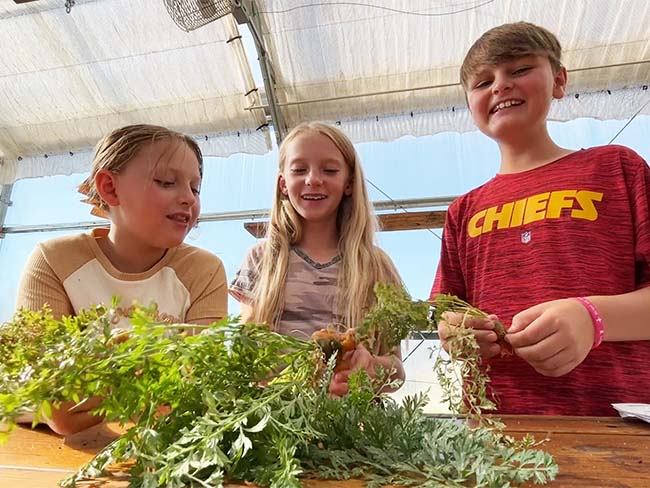
September 27, 2023
10 school districts receive next round of RISE grants
The Thriving Schools program helps educators and students in Colorado integrate …

September 21, 2023
Researching climate and health solutions
Kaiser Permanente is partnering with the National Academy of Medicine.

August 28, 2023
Grants improve the total health of our communities
Kaiser Permanente increases access to mental health services in Southern …

August 17, 2023
Beyond clinic walls: Research supporting healthy communities
Stories in the Department of Research & Evaluation 2022 Annual Report demonstrat …

August 15, 2023
'Hot-spot' strategy gets more Californians vaccinated
A new location-based vaccine strategy by Kaiser Permanente was successful …

August 10, 2023
Highlighting our community health work in Southern California
The Kaiser Permanente Southern California 2022 Community Health Snapshot …
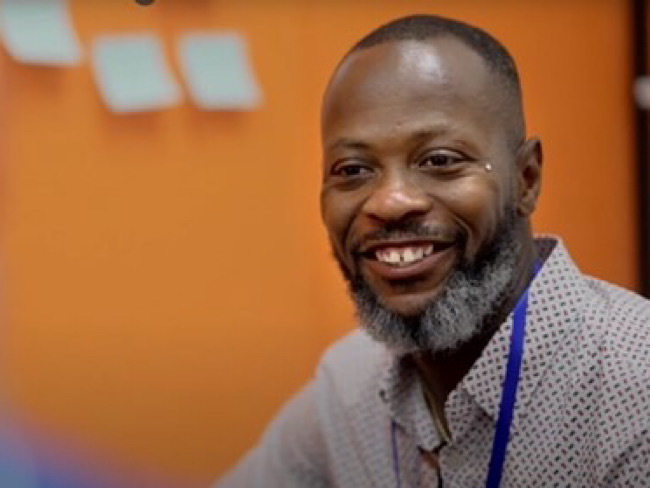
August 1, 2023
Joining forces to improve community health
The Kaiser Permanente and 211 LA partnership makes strides in improving …
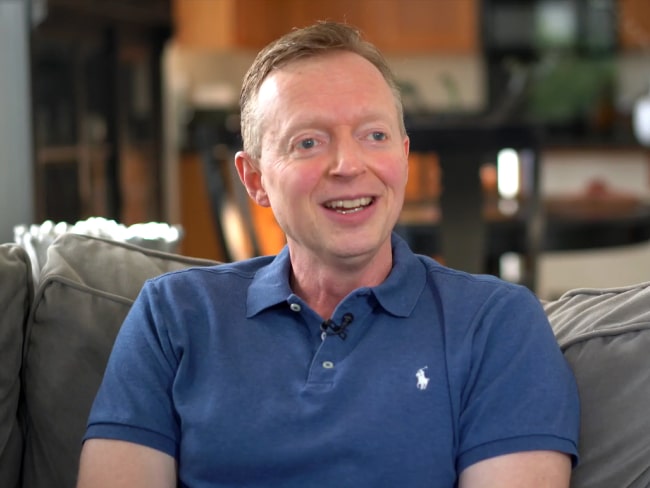
July 21, 2023
Thankful for every day after HPV-related cancer diagnosis
Michael West shares his incredible journey from diagnosis to treatment …
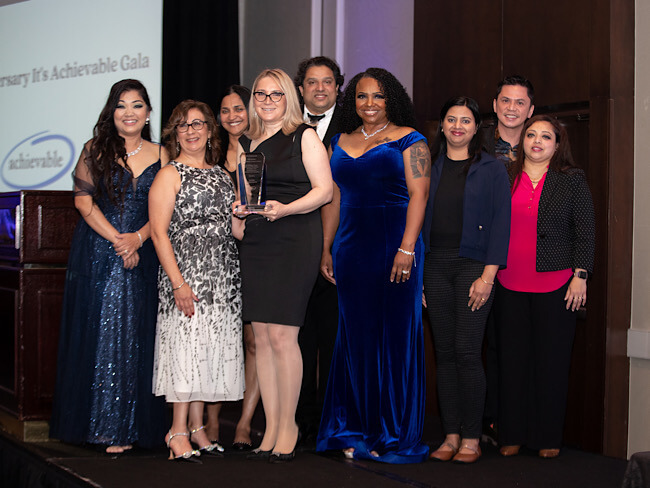
June 14, 2023
Honored for commitment to people with disabilities
The Achievable Foundation recognized Kaiser Permanente for its work to …

June 6, 2023
COVID-19 vaccine: No serious side effects in young children
Kaiser Permanente researchers led analysis of large, diverse group of young …
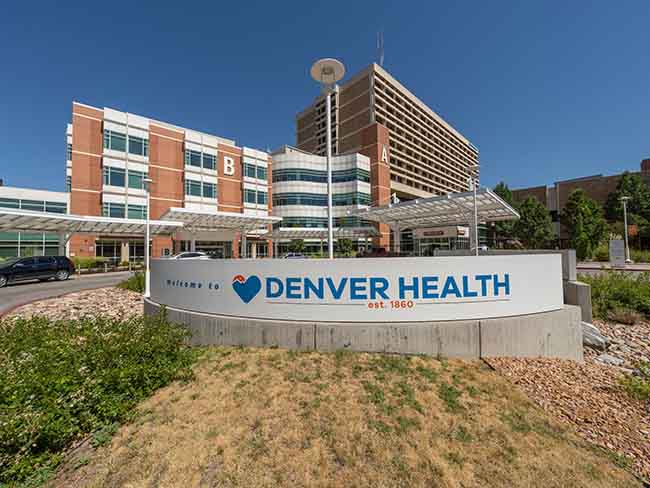
May 30, 2023
Kaiser Permanente commits up to $10 million to Denver Health
Funding comes as Denver Health provided $120 million in uncompensated care …

May 22, 2023
Investing and partnering to build healthier communities
Kaiser Permanente supports Asian Americans Advancing Justice to promote …
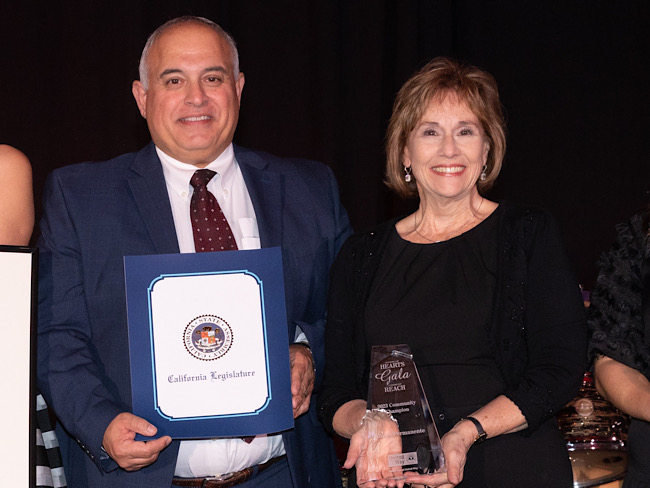
May 19, 2023
Partnering to improve the health of homeless individuals
Grant funds will combat housing inaccessibility and improve health care …
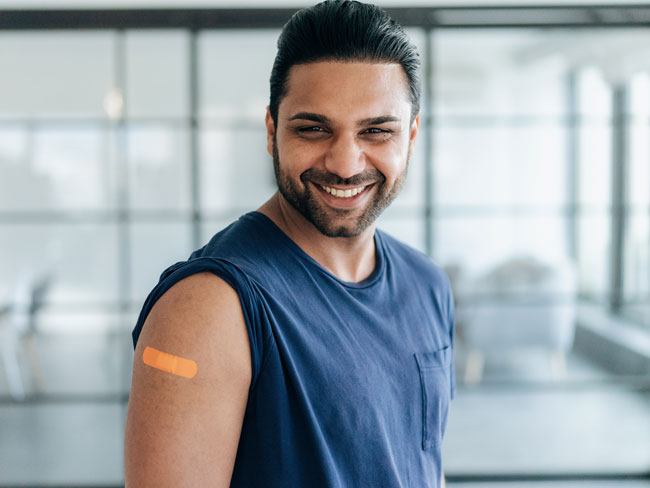
May 16, 2023
COVID-19 public health emergency has ended: What’s changed?
Vaccinations, testing, and treatment are still widely accessible. Member …

May 16, 2023
How we help people access financial literacy skills
Kaiser Permanente is working with community partners to reduce financial …

May 11, 2023
COVID-19 testing, testing — Get results in 1, 2, 3
Testing is the most important way you can help control the spread of COVID-19.
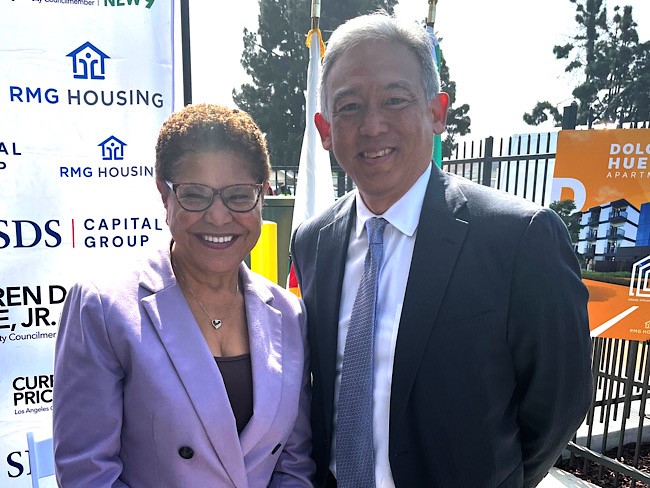
May 3, 2023
Transforming the lives of people experiencing homelessness
Kaiser Permanente recognizes that safe, affordable housing is crucial to …

April 11, 2023
Collaboration is key to keeping people insured
With the COVID-19 public health emergency ending, states, community organization …

April 7, 2023
Virtual care helps ease physical pain
Kaiser Permanente offers many high-quality, convenient options to help …
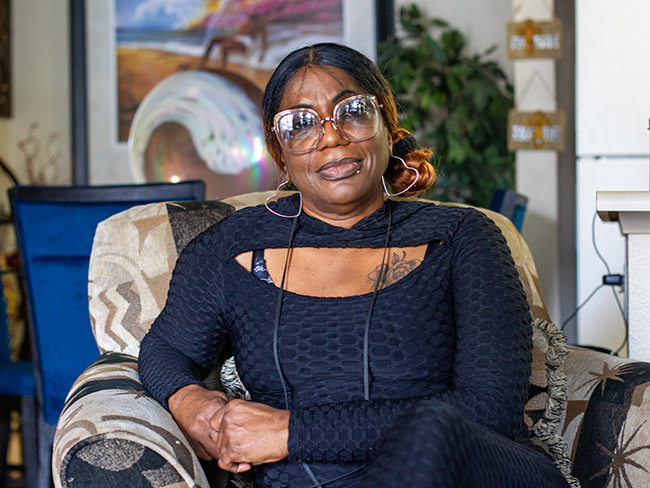
April 3, 2023
Hospital patients who are homeless connected to housing
A Kaiser Permanente program connects patients experiencing homelessness …
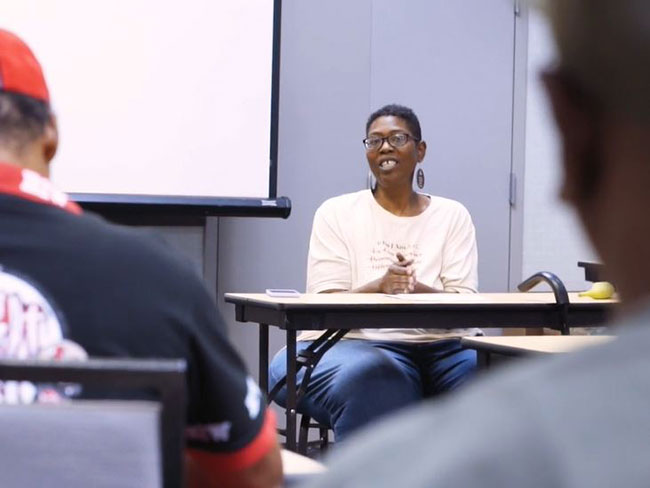
March 28, 2023
Sentenced to prison, not a life of bad health
Reentering society after serving time can land people in unhealthy situations. …
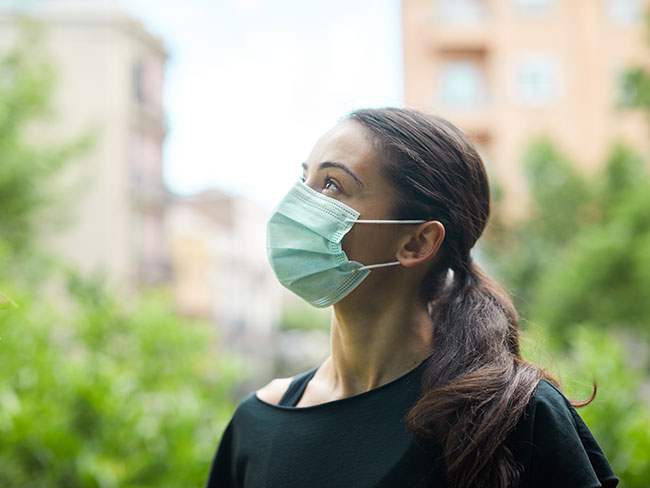
March 16, 2023
Marking the COVID-19 pandemic’s third year
Learning from this historic health crisis will better prepare us for future …
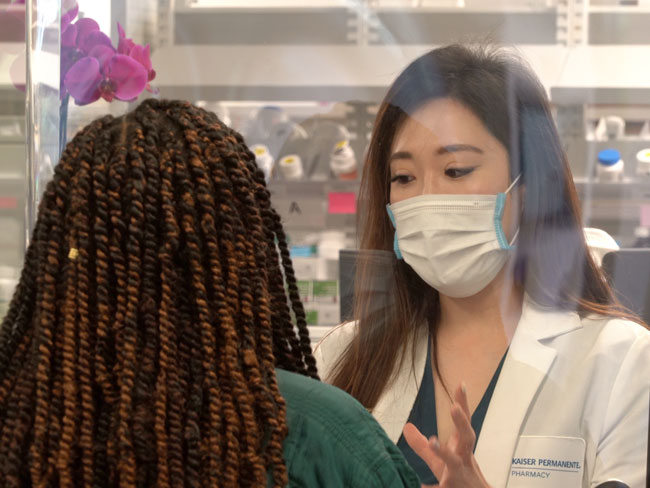
March 16, 2023
Paxlovid associated with lower risk of hospital admission
A Kaiser Permanente study finds COVID-19 patients treated quickly with …
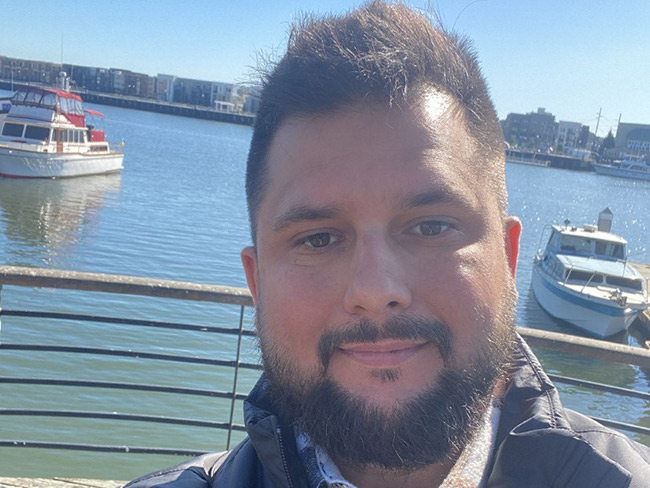
March 6, 2023
Living with long COVID
From avid snowboarder to chronically ill patient. How Kaiser Permanente …
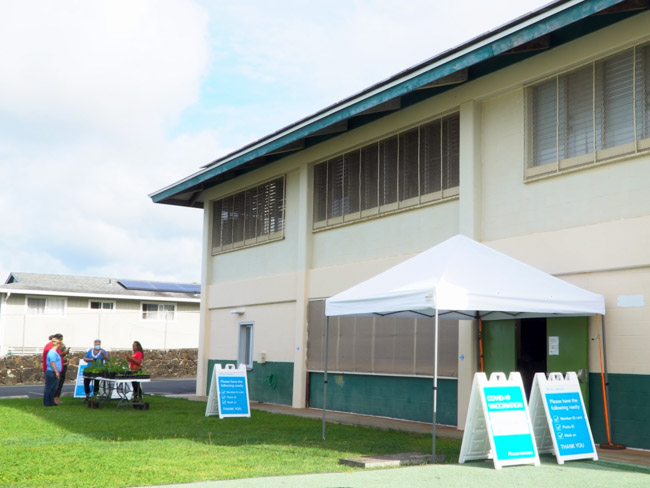
March 2, 2023
Improving the health of the community
Kaiser Permanente awards $80,000 in grants for health policy and community …
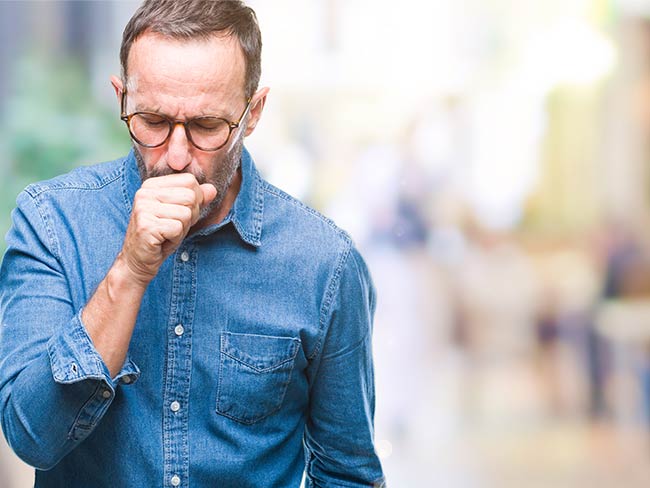
February 28, 2023
What you need to know about COPD
Almost 16 million people in the United States have chronic obstructive …
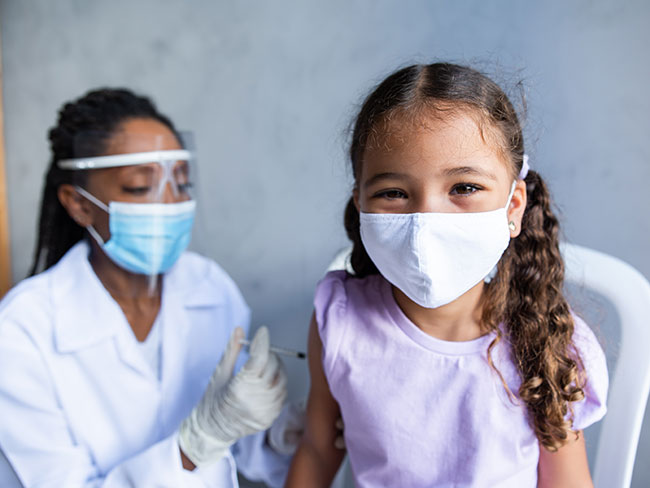
February 27, 2023
Teaching flu a lesson
School-based flu vaccination clinics made it safe and convenient for students …
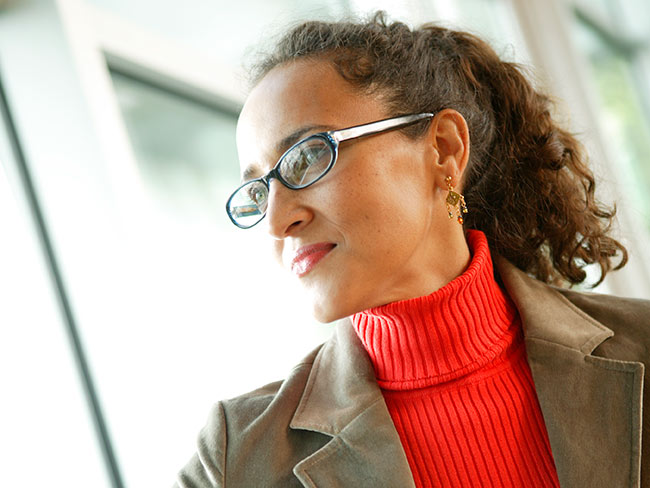
February 23, 2023
Grants help spur economic opportunity
Kaiser Permanente funds programs to improve the overall health of the community.
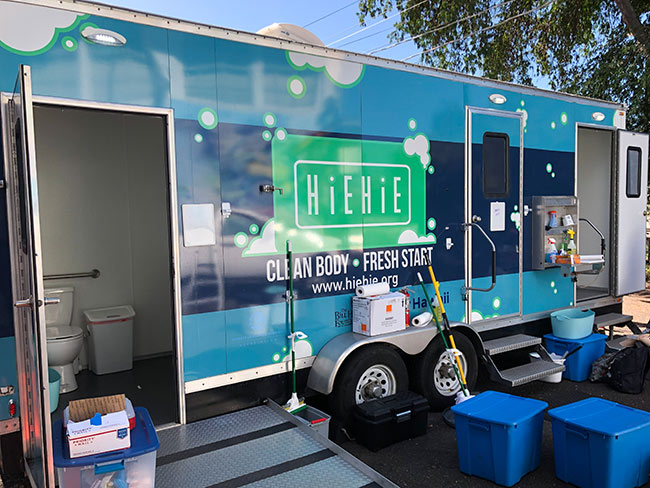
February 3, 2023
Addressing health and housing insecurity
Kaiser Permanente supports 3 Hawaii-based nonprofits.

February 2, 2023
Addressing social isolation in the Northwest
Kaiser Permanente invests $3.3 million to build healthy social connections …
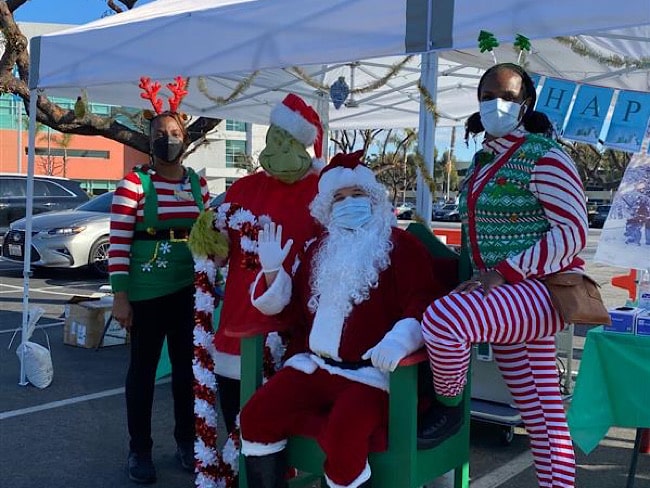
January 27, 2023
Timely flu vaccinations at community events
Proactive flu prevention outreach helped community members in Downey, California …
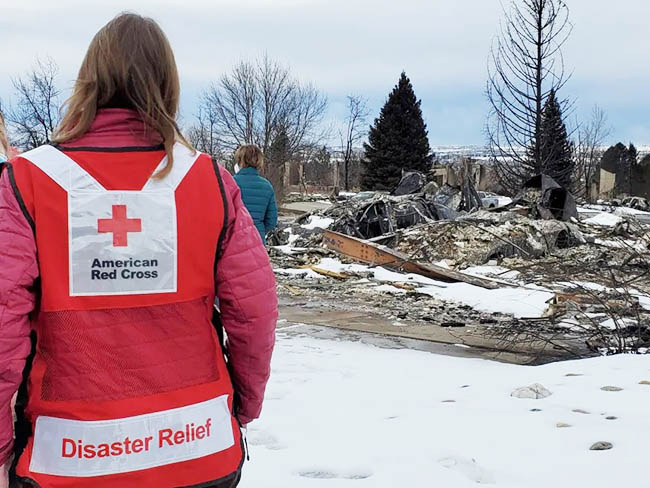
January 17, 2023
Increasing community resilience with disaster readiness
Kaiser Permanente partners with the American Red Cross to help address …

December 22, 2022
Denver earns an overall gold medal
CityHealth recognizes Denver for its leadership in supporting policies …
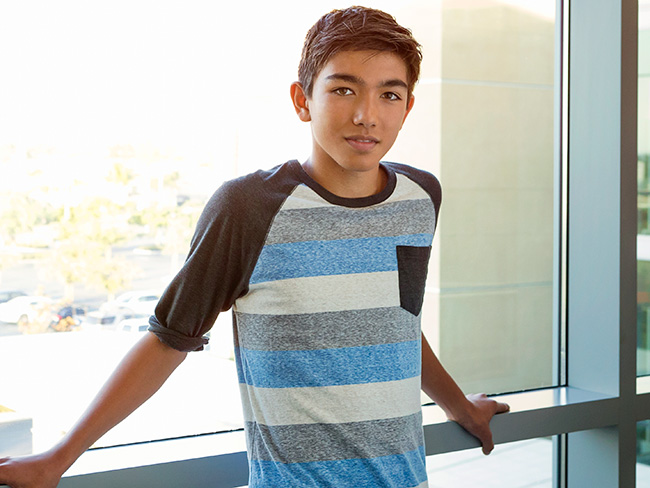
December 15, 2022
Helping provide teens a brighter future
Kaiser Permanente grants $150,000 to three community nonprofits.
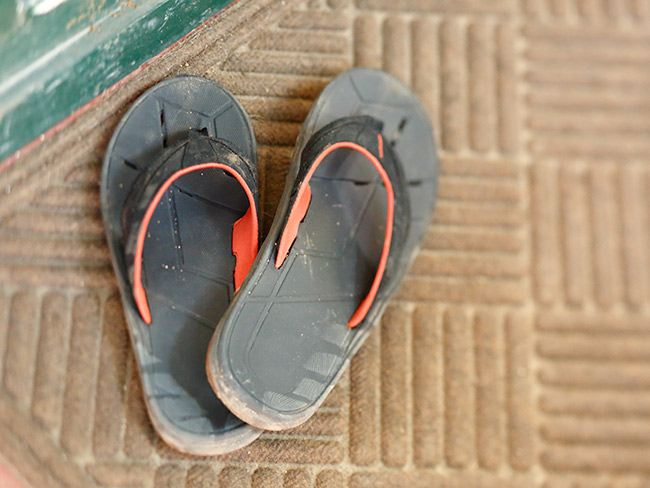
December 2, 2022
Addressing homelessness and changing lives
Kaiser Permanente funds innovative projects on Oahu.
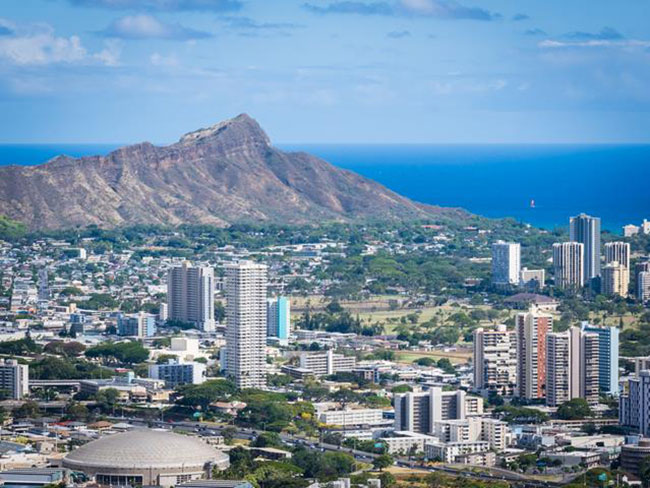
November 17, 2022
Addressing housing insecurity
Kaiser Permanente funds 2 grants for Hawaii-based nonprofits.
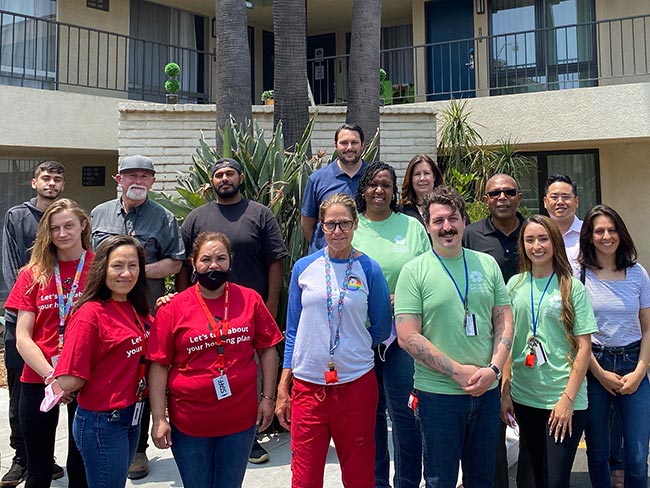
November 8, 2022
A shared goal: Ending homelessness in California
Where you live impacts your health. With a new $1.5 million grant, we’re …
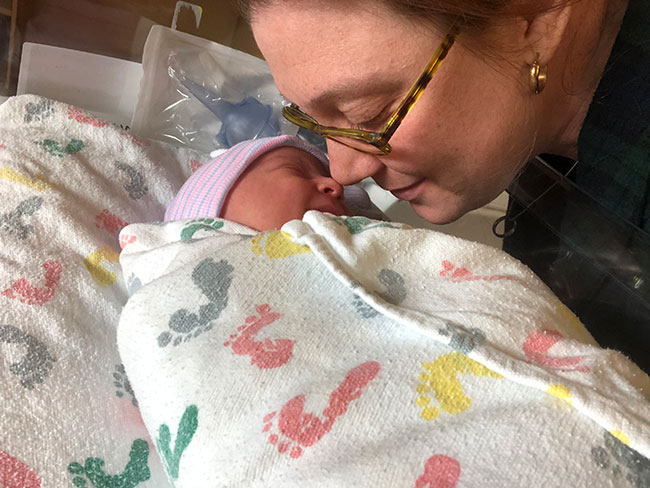
September 27, 2022
Maternity appointments from the comfort of home
New care option offers pregnant patients a mix of in-person and video visits.
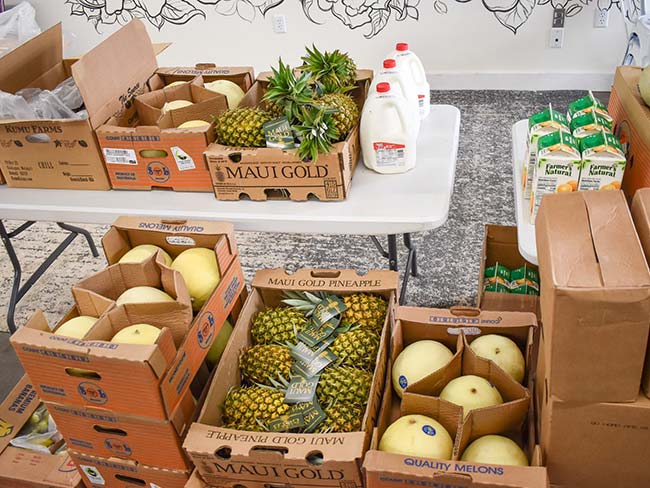
August 24, 2022
Grant to Aloha Harvest supports food security
Grant of $50,000 will provide 1,000 healthy meals to individuals with low …
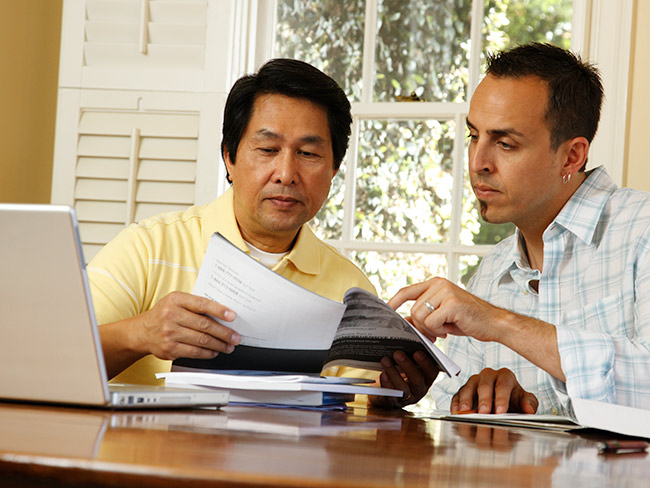
August 19, 2022
Improving financial literacy
Kaiser Permanente announces $50,000 grant to Goodwill Hawaii.
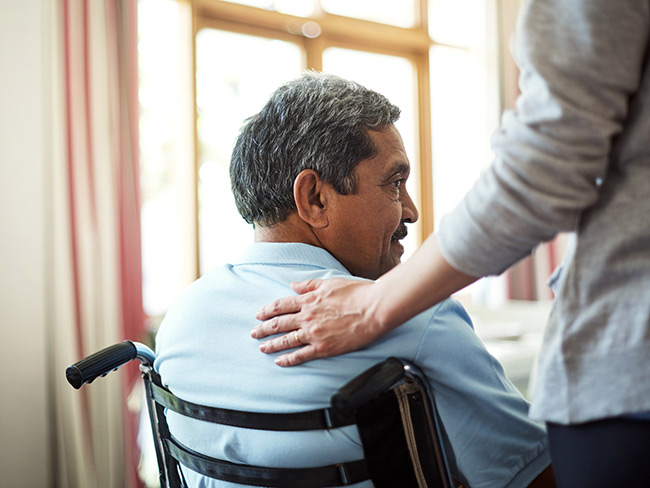
August 18, 2022
Homeless and sick: Medical respite centers offer vital care
Working with our communities, we’re supporting centers that offer short-term …
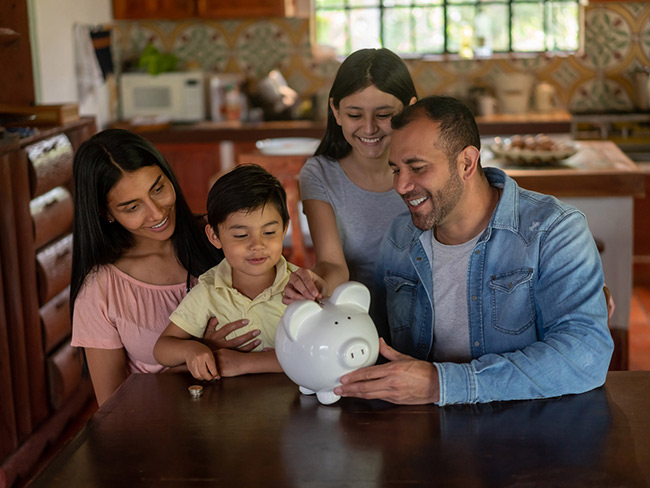
July 19, 2022
Connecting people to financial coaching
Debt, bad credit, and other money matters can affect a person’s physical …

June 27, 2022
Kids 6 months to 17 years can receive COVID-19 vaccination
Providing safe and effective vaccinations to children is an important step …
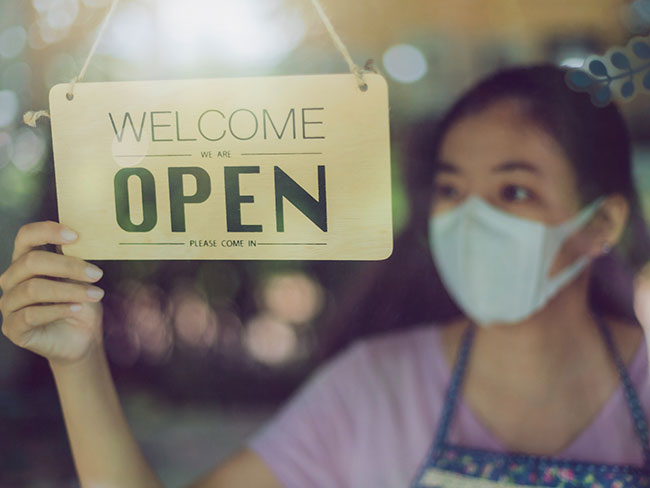
May 27, 2022
Grants help AAPI communities and businesses
Kaiser Permanente is working with community organizations and businesses …
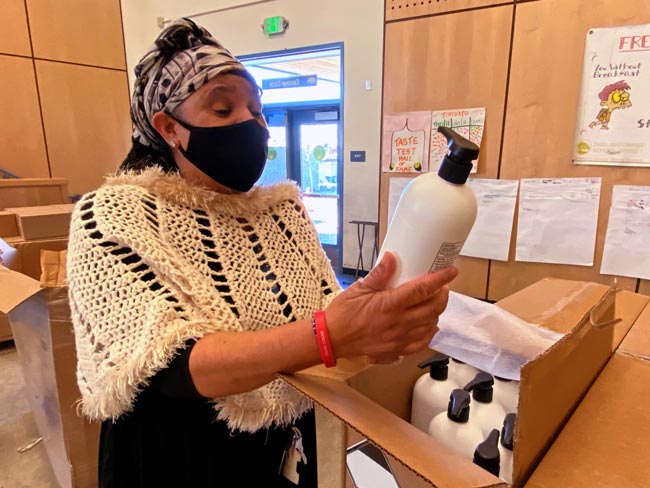
May 4, 2022
Donated supplies keep community organizations pandemic-ready
We donated over $28 million worth of face masks, hand sanitizer, and other …
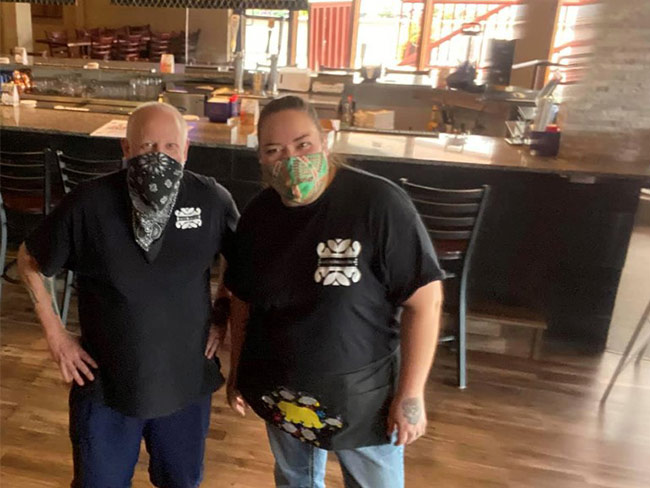
January 25, 2022
Helping small businesses thrive during the COVID-19 pandemic
Kaiser Permanente grants are supporting businesses such as the Carefree …
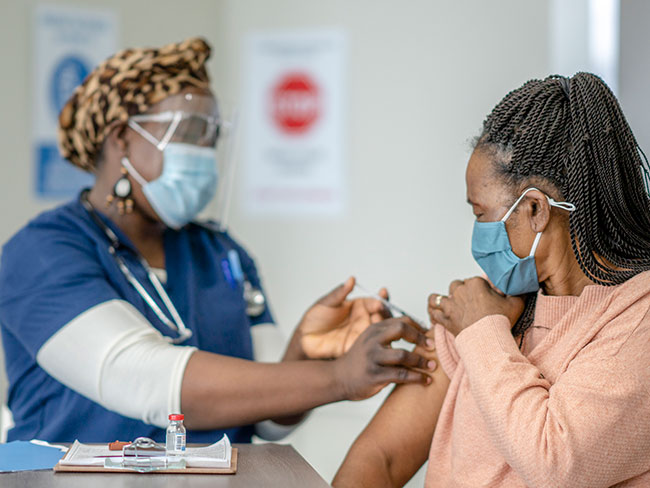
December 6, 2021
Faith leaders use trusted voices to encourage vaccination
Grants expand support for faith-based organizations working to protect …
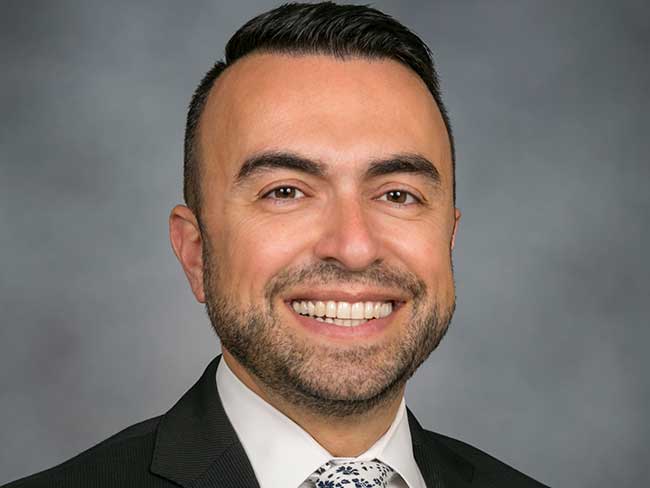
November 30, 2021
Bechara Choucair, MD, returns as chief health officer
After serving on the White House COVID-19 response team, Bechara Choucair, …
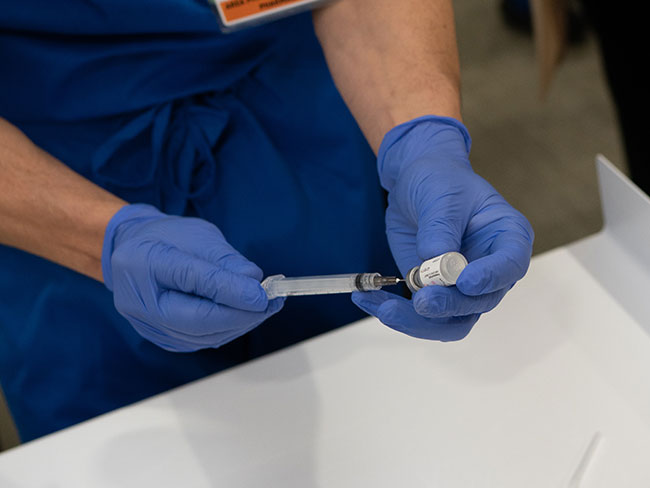
October 12, 2021
Beyond advocacy: Requiring vaccination to stop COVID-19
Kaiser Permanente and other leading companies are mandating COVID-19 shots …
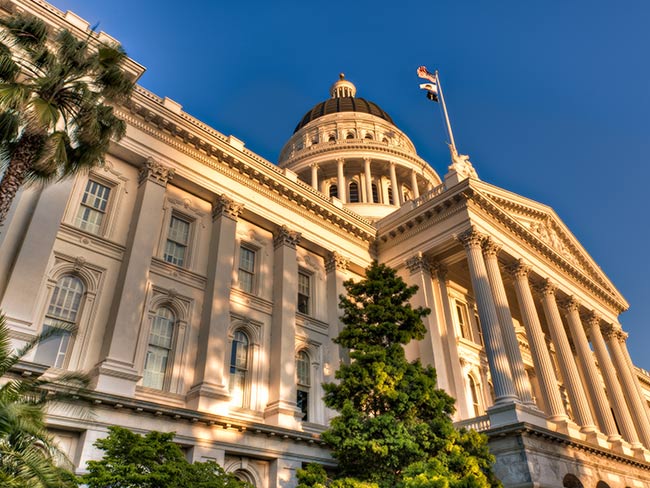
October 1, 2021
Our support of California’s student vaccination requirement
A statement from Kaiser Permanente chair and chief executive officer Greg …

August 19, 2021
Supporting small businesses owned by people of color
Kaiser Permanente’s partnership with Local Initiatives Support Corporation, …
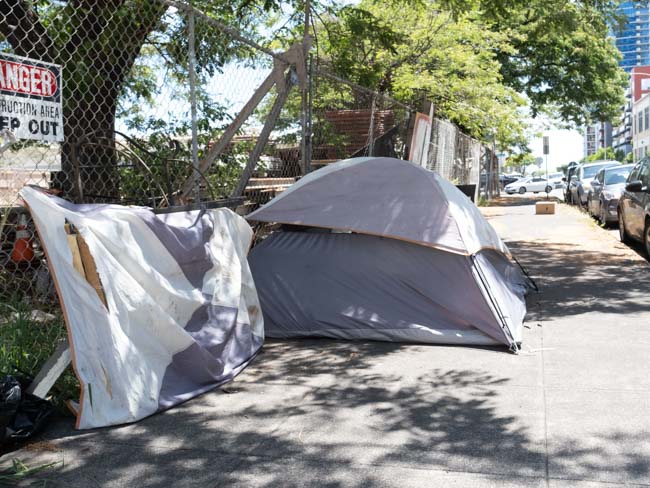
August 18, 2021
$300K donation to house homeless veterans
Funding is part of a $3 million partnership with Community Solutions for …
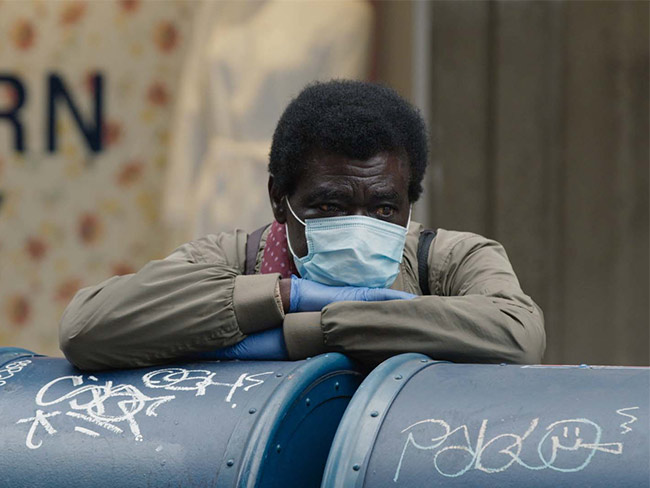
August 17, 2021
Homeless in a pandemic
For people without a safe place to call home, good health is often out …
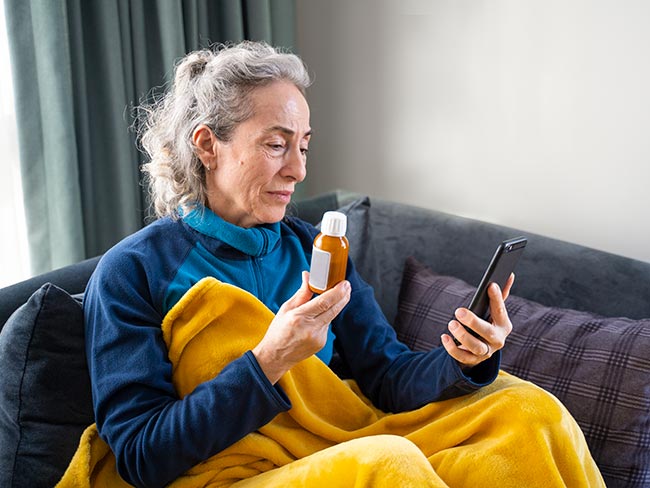
June 8, 2021
Cancer patients and physicians embrace telehealth
Video visits and virtual collaboration speed cancer care transformation …

May 24, 2021
Supporting access to telehealth for vulnerable populations
Kaiser Permanente grants help fund community organizations working to expand …
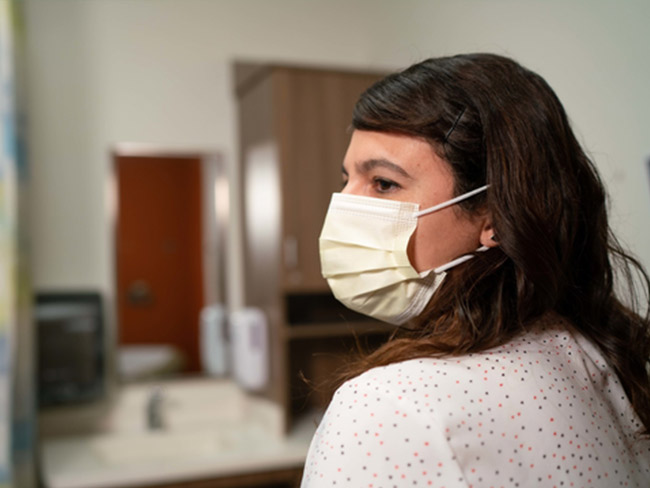
April 28, 2021
COVID-19 outcomes are more severe for people of color
Kaiser Permanente research underscores the importance of culturally appropriate …
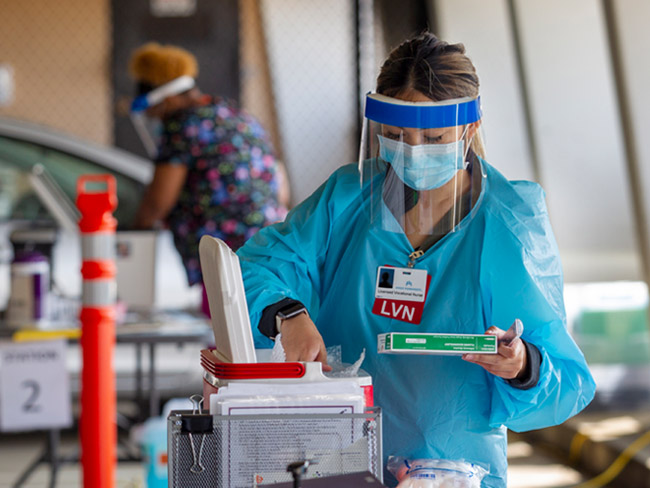
March 23, 2021
Vaccine Equity Toolkit will help address equitable access
As vaccines bring hope to end the pandemic, Kaiser Permanente’s toolkit …
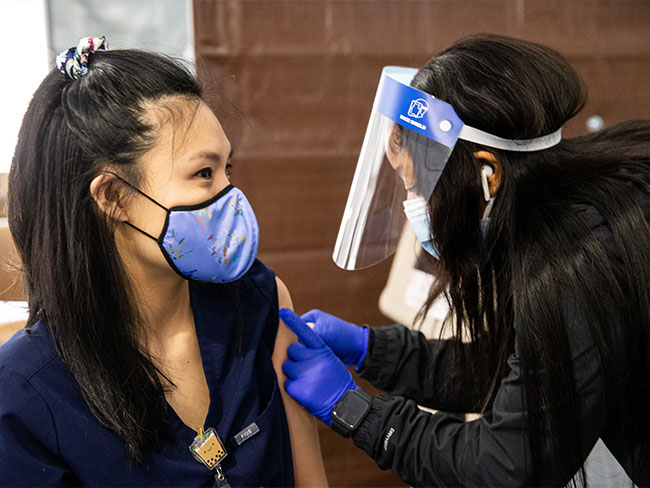
March 11, 2021
Our support of the American Rescue Plan Act
A statement from CEO Greg A. Adams about the American Rescue Plan Act.
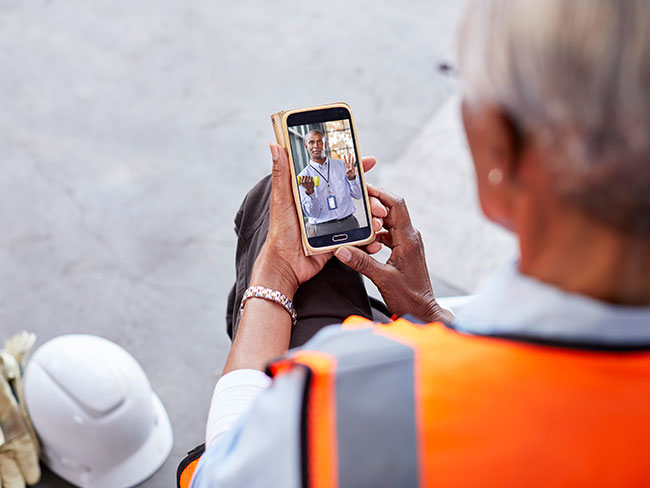
January 15, 2021
The fastest path to care
Available 24/7 with no appointment, e-visits offer Kaiser Permanente members …

November 24, 2020
Pandemic spurs new approach to diabetes care
A diabetes specialist talks about new trends in providing care, and innovations …
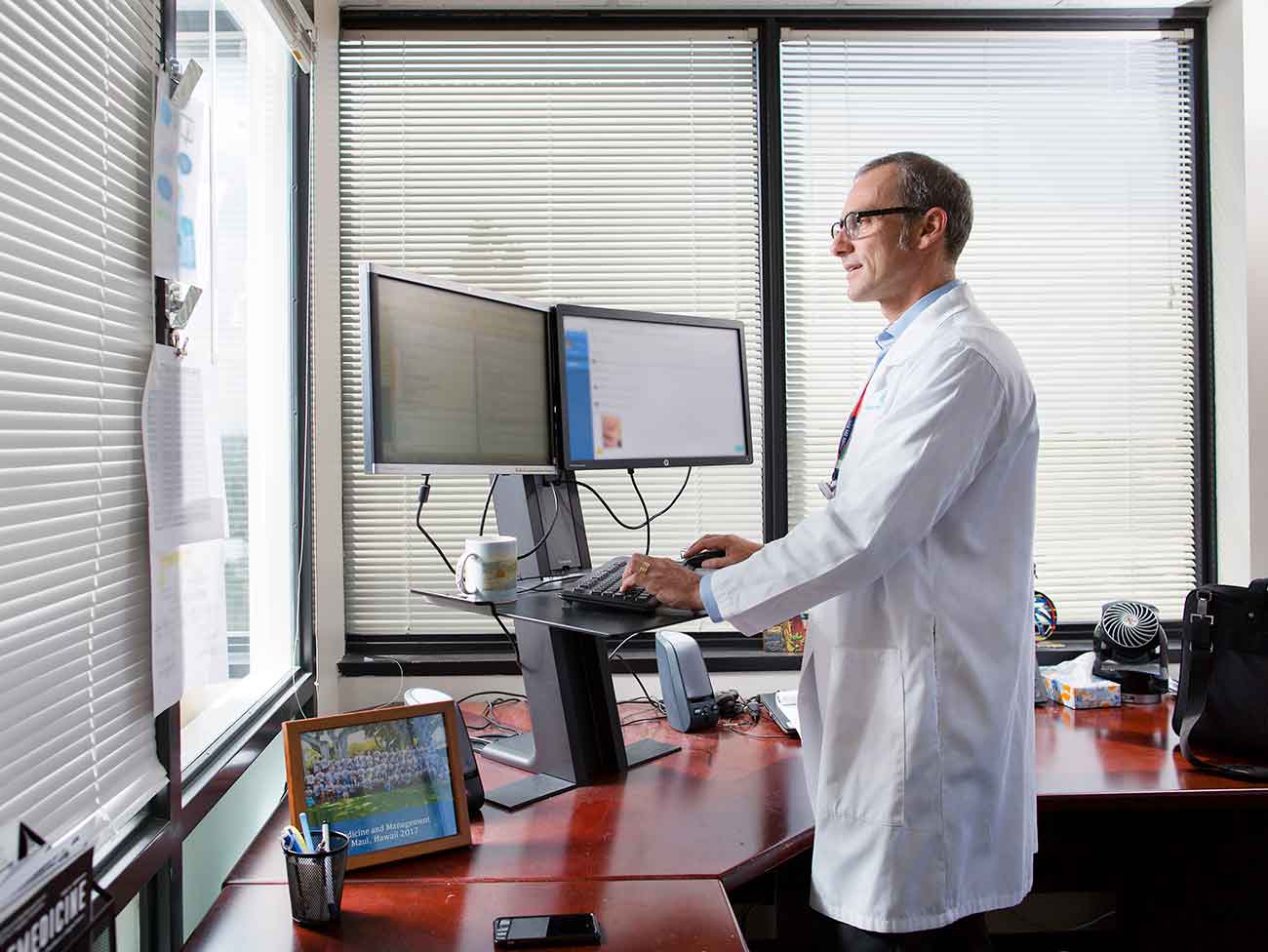
October 2, 2020
Making (virtual) house calls
With expanded telehealth options, Kaiser Permanente members get convenient …
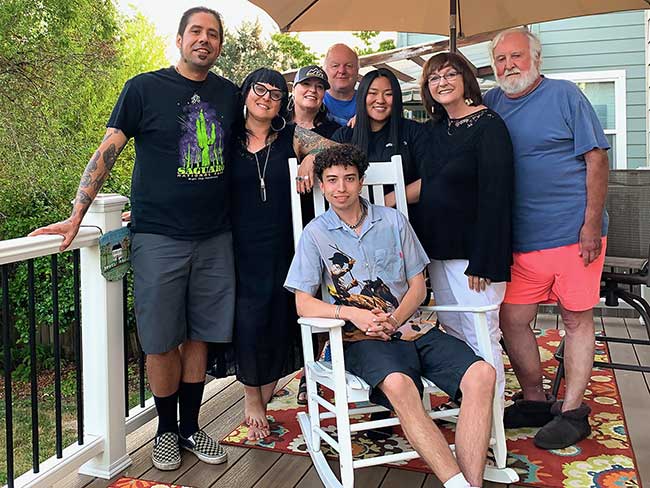
September 30, 2020
Cardiac care in the time of COVID-19
Skilled care and thorough infection-prevention protocols kept Eleanor Gorman …
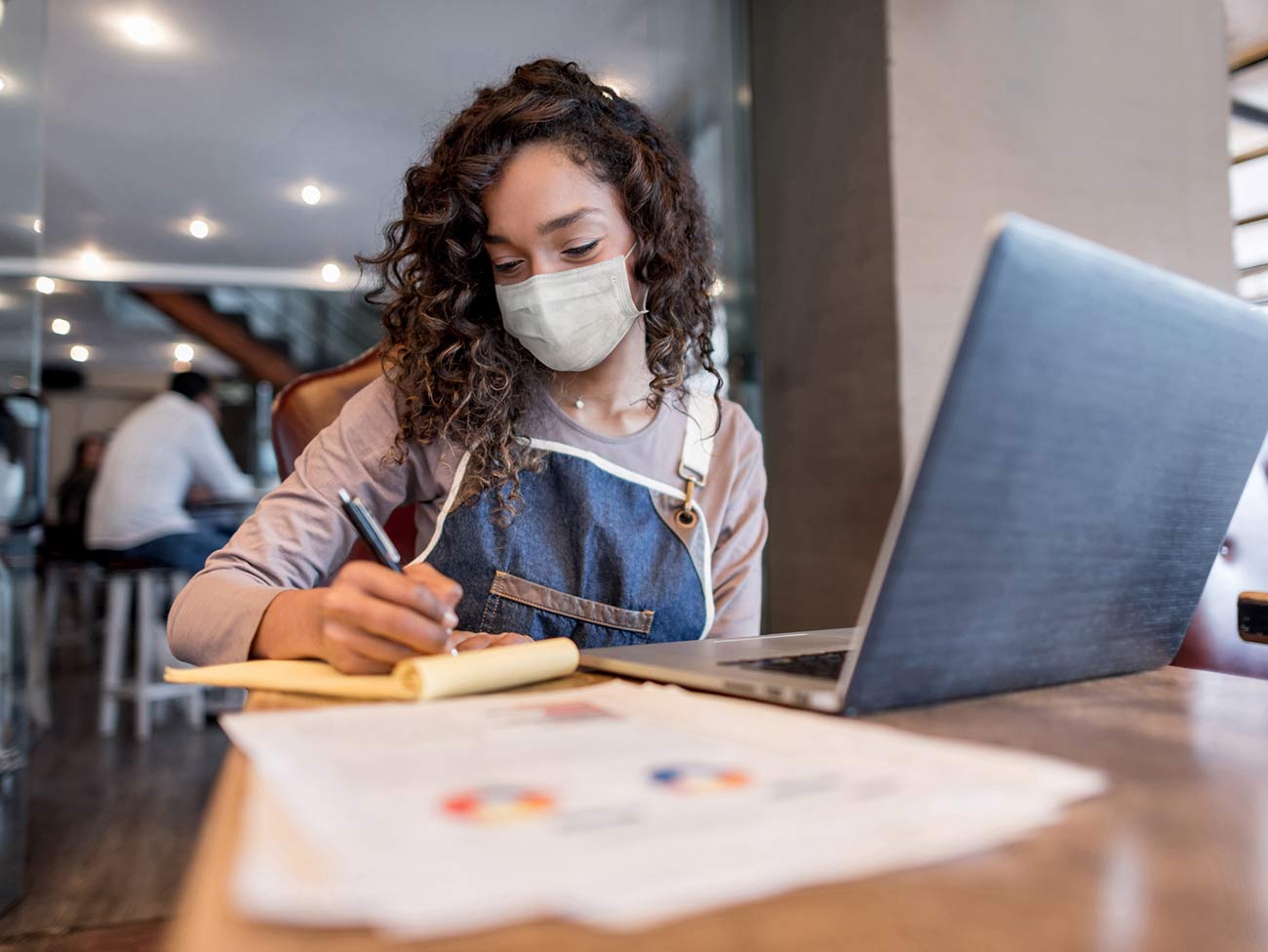
August 12, 2020
Grants support community health in midst of COVID-19
Kaiser Permanente pledges more than $28 million in grants, many to address …
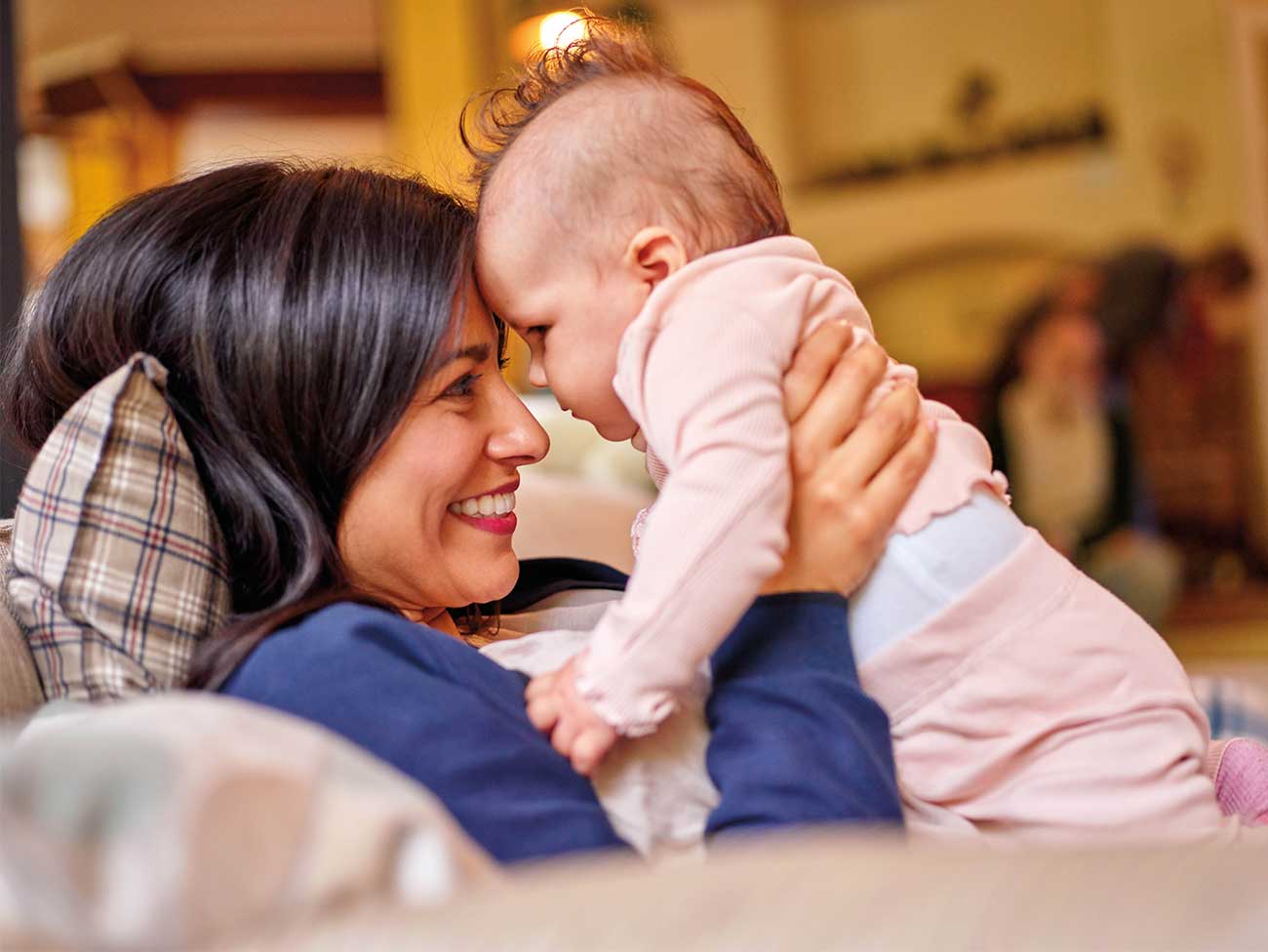
July 17, 2020
Maternity care ranks among the best in the nation
Newsweek’s Best Maternity Care Hospitals 2020 report recognizes Kaiser …
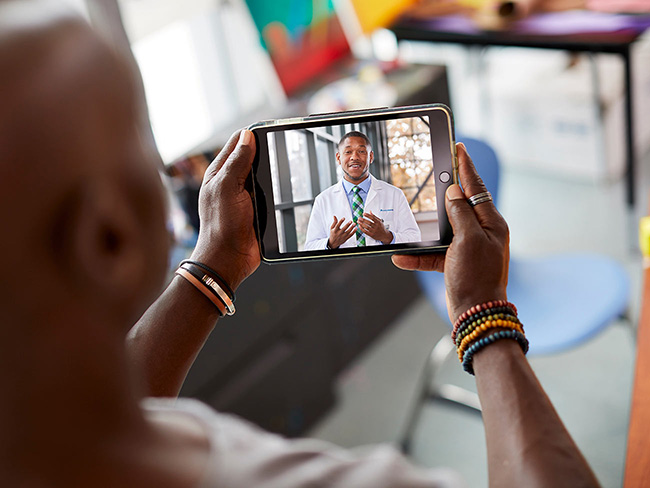
July 1, 2020
A breakout moment for virtual care
Kaiser Permanente’s fully integrated telehealth capabilities place quality …

May 19, 2020
Large decrease in hospitalized heart attack patients
New Kaiser Permanente research backs anecdotal reports that people are …
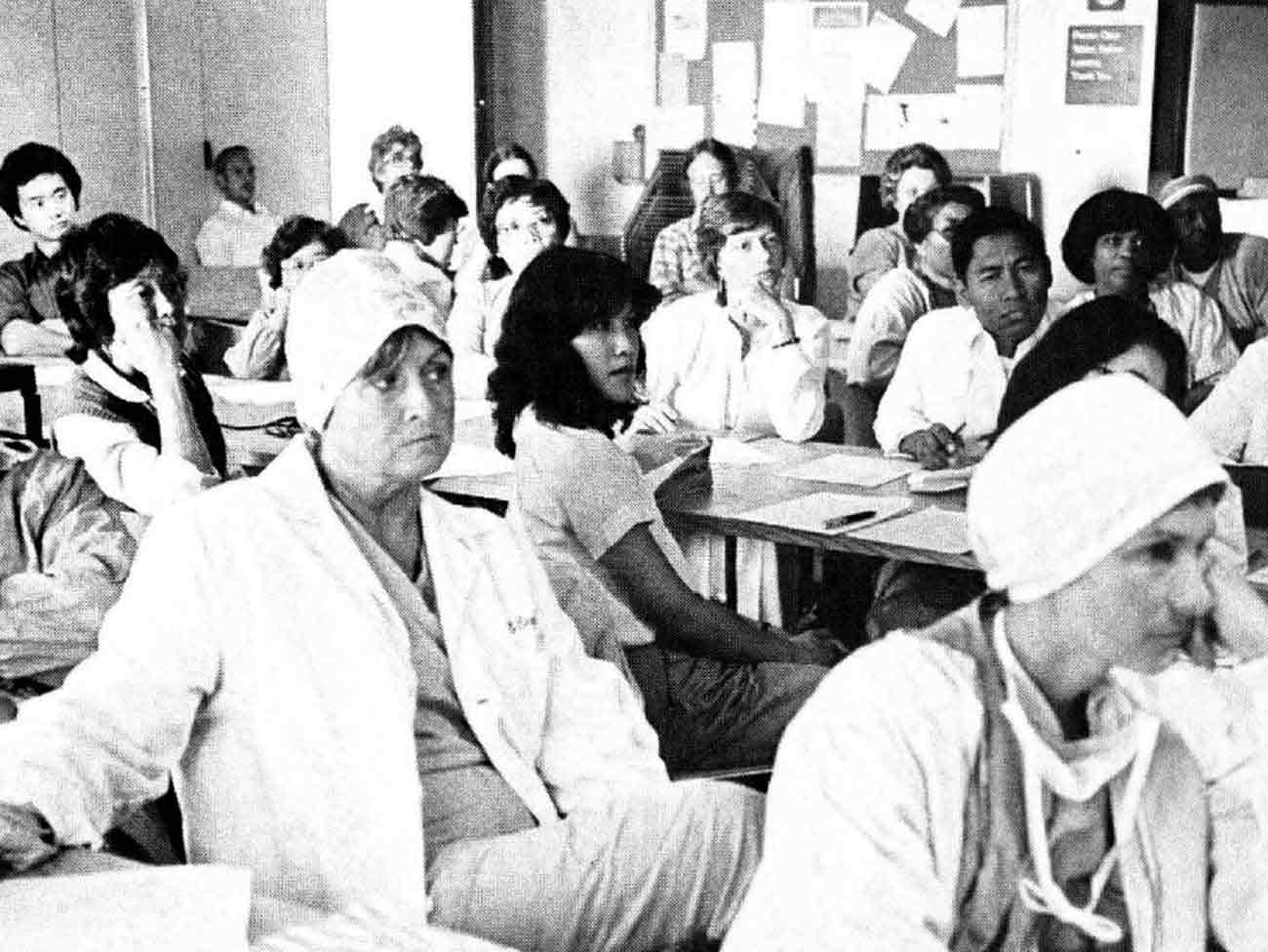
May 18, 2020
Nurses step up in crises
Kaiser Permanente nurses have been saving lives on the front lines since …